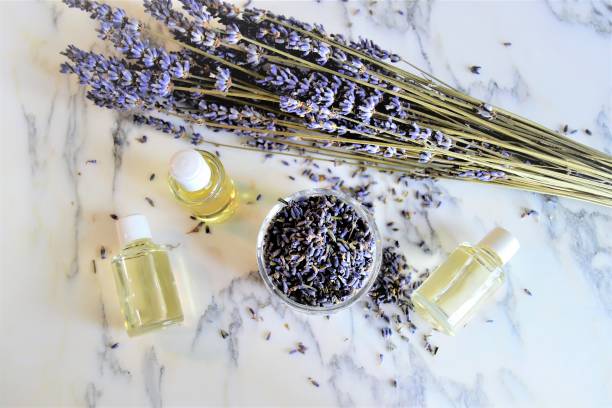Lavender oil has numerous health benefits. It is antimicrobial, sedative, and anti-anxiety. In addition to these, it has been shown to fight off several different kinds of infections. These include candida and fungal infections. In a recent study, lavender oil was found to be able to fend off candida.
Antimicrobial
- Lavender oil is a common herbal remedy that is considered to have antibacterial and antifungal activity. It has MIC values comparable to those of tea tree oil against Proteus vulgaris, Escherichia coli, VRE and Shigella sonnei.
- Recent studies have shown that lavender oil has antibacterial activity against bacteria, although these effects may not be seen in humans.
- It may help alleviate symptoms of eczema, a common inflammatory skin disease characterized by itchy, cracked skin and bleeding. This skin disorder is often caused by genetics and environmental triggers.
- However, it also use for the males ED treatment because it is naturally but now days most of the people are looking for the fastest solution so they can use kamagra oral jelly or super p force.
Sedative
- Although there is a small body of evidence, lavender oil appears to have sedative effects. During chemotherapy, Everson became fascinated with lavender’s antiemetic effects.
- She was able to remain vomit-free, taking just six antiemetic pills during her treatment. Unfortunately, her study was not randomized and controlled.
- It did not include any controls, but patients did give informed consent. One possible explanation is the low rate of antiemetic use among participants.
- Recent studies have shown that lavender oil increases the amount of time infants spend in deep sleep. In addition, infants aged one to 18 weeks responded well to lavender oil baths.
- Likewise, elderly subjects and insomnia patients responded well to inhaled lavender oil vapor. Its effect on sleep quality was similar to that of prescription sleep medications.

Calming
- Lavender essential oil has many calming and sedative benefits, including a reduction in heart rate, blood pressure, and temperature. It is also known to reduce anxiety and promote sleep.
- Studies have shown that lavender can help people with insomnia, depression, and anxiety by increasing the amount of time spent in deep sleep and slow-wave sleep.
- The calming properties of lavender have been used in a variety of different products for centuries.
- They have been used to eliminate harmful bacteria, treat flatulence, and relieve muscle spasms. Its anti-spasmodic and anti-inflammatory properties have also helped soothe itchy bug bites and promote rapid healing of irritated skin.
Anti-anxiety
- Lavender oil has been known to reduce anxiety symptoms. It can be used in aromatherapy, applied to specific skin points, or taken orally.
- Despite its benefits, it is important to note that it does not replace conventional treatments for anxiety and other disorders. It is best to consult a healthcare professional before taking any supplements or using lavender oil for the first time.
- Research has shown that aromatherapy can reduce anxiety and improve sleep. It can be used to treat a variety of disorders, including insomnia, depression, and psychiatric disorders.
- There is even evidence that lavender can improve sleep in severely demented patients.
Anti-stress
- Lavender oil has been shown to help you relax and improve your sleep. Its anxiolytic properties create a calming effect and may help insomniacs fall asleep easier.
- It also soothes the nervous system and can be used in a diffuser to add an aromatic scent to your room or diffused into the air.
- Lavender essential oil is a soothing aroma and can be used to enhance your bath time, improve your mood, or ease tension in the temples.
- Lavender oil is a highly concentrated liquid made by distilling the flowering tops of the lavender plant. It is certified organic by the USDA and undergoes quality testing through GC-MS.
- This test measures the percentage of individual compounds in the oil and ensures its purity.
Anti-eczema
- Lavender oil is a great option for treating eczema. It is a ‘neat’ treatment that should be applied to affected areas of skin a few times a day.
- It is made up of a blend of essential oils and lavender hydrosol, a by-product of the steam distillation of lavender. Lavender oil contains linalool and linalyl acetate, which have anti-inflammatory effects on the skin.
- However, lavender oil must be used in a diluted form and in combination with a carrier oil.
- Benzoin is another anti-inflammatory and antiseptic oil that can help soothe the skin. Benzoin contains aldehydes that promote wound healing and tissue renewal.
- It can be added to warm bath water or a carrier oil for an effective bath soak.